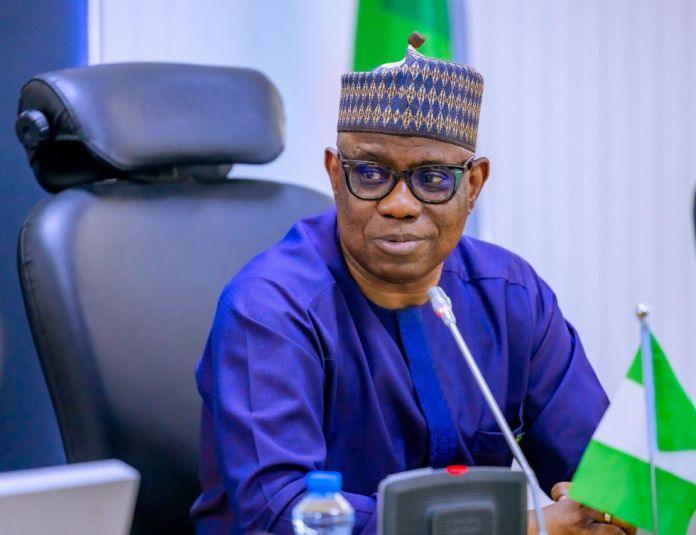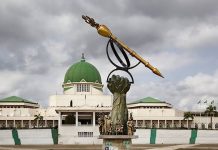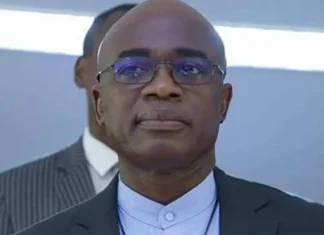Nigeria lost 200,000 barrels of crude oil per day due to the recent strike by the country’s oil workers, which resulted in a three-day supply disruption of over 600,000 barrels, according to Bayo Ojulari, Group Chief Executive Officer of the Nigerian National Petroleum Company Limited (NNPC).
A confrontation with Dangote Refineries’ management over the alleged dismissal of 800 employees prompted the Petroleum and Natural Gas Senior Staff Association (PENGASSAN) to call for its members to go on strike last month.
Regarding the impact of the three-day strike on the oil sector, Ojulari said that the NNPC’s production capacity was significantly impacted by the industrial action.
Nigeria has just attained a 7 billion cubic feet (BCF) of gas, according to the GCEO, who told reporters after meeting with President Bola Tinubu in Lagos and calling the strike action regrettable.
The strike that resulted from the Dangote and PENGASSAN disagreement was regrettable, in my opinion. When there is a strike and crucial personnel are not available to service critical facilities, optimal output is nearly impossible. In this instance, the deferred output actually resulted in a considerable loss of nearly 200,000 barrels per day.
Additionally, he stated, “we have gas production that was postponed and power generation that was impacted by that strike by approximately 1.2 megawatts.”
He did, however, express satisfaction that the federal government’s prompt action, through the Office of the National Security Adviser (NSA) and the Federal Ministry of Labor, had ended the problem.
“I’m very pleased that the federal government, under the direction of the Minister of Labor and with the full support of the National Security Adviser, was able to bring everyone together for a dialogue and bring them to the table. Now, there has been a communiqué that has been agreed upon on the way forward,” Ojulari continued.
Since then, we have been able to restore output to the previous level, albeit there are still a few areas where we need to catch up. We are all extremely hopeful that everyone will follow the message. In general, we have progressively reverted to the deferment that we currently have and to recover lost productivity,” he continued.
Ojulari added that Nigeria has been able to increase its production of crude oil since last month, stating that in September 2025, 1.68 million barrels of crude oil were produced daily, along with 7 billion cubic feet of gas per day.
“We are progressing well. As you are aware, last month’s oil production of 1.68 mbpd was excellent. It had been roughly five years since the last one. We also achieved the largest gas production in recent history, surpassing 7 billion cubic feet per day, in terms of milestones.
“We also anticipate that by the end of the year, we should be clocking at least 1.8 mbpd, thanks to some turnaround maintenance we completed in August and September, all of which are scheduled to return this month,” the NNPC CEO said.
Although he expressed hope that the price will stabilize soon after the crisis is resolved, he attributed the recent increase in cooking gas prices to the artificial scarcity brought on by the PENGASSAN strike.
The increase you observed was comparatively artificial because, during the strike, loading and movement were delayed for two to three days. As a result, you might observe that some people who had resources in reserves had to pay a price, and it may take some time for distribution to fully resume once things return to normal.
Ojulari continued, “I anticipate that now that prices are normal, they should go back to where they were prior to the strike.”
When asked why he was visiting the president, Ojulari explained that it was a standard visit to inform him of any changes in the oil industry, particularly the assignment he had been given to draw in investors.
It’s a great chance to provide the president an update on NNPC’s progress, especially with regard to production performance and our efforts to draw in investment.
The President gave us a clear directive, as you may remember, to increase gas output and production to at least 2 million barrels per day by 2027 and up to 3 million barrels per day by 2030. So, how are we doing this year and how are we getting ready for next year to make sure we achieve this growth? Accordingly, that was among the changes I provided to the President,” the engineer wrote.
Due to the return of light lines after the PENGASSAN and Dangote incidents, the NNPC has raised the pump price of Premium Motor Spirit (PMS), also referred to as gasoline, at its retail locations once more.
It was discovered that NNPC stations in Abuja, particularly in the Wuse Zone 6 and Zone 4 districts, had raised the price of their pumps from N890 to N905 per liter. This represented a change of N15, or around 1.7%.
The latest price increase, according to Abubakar Maigandi, president of the Independent Petroleum Marketers Association of Nigeria (IPMAN), is the result of recent supply disruptions brought on by the conflict between PENGASSAN and the Dangote Refinery.
“The disruption caused by PENGASSAN’s strike is the reason,” he stated. Nonetheless, the IPMAN chief stated that “our members are still selling between N885 and N895 per litre.”
Join Television Nigerian Whatsapp Now
Join Television Nigerian Facebook Now
Join Television Nigerian Twitter Now
Join Television Nigerian YouTUbe Now





